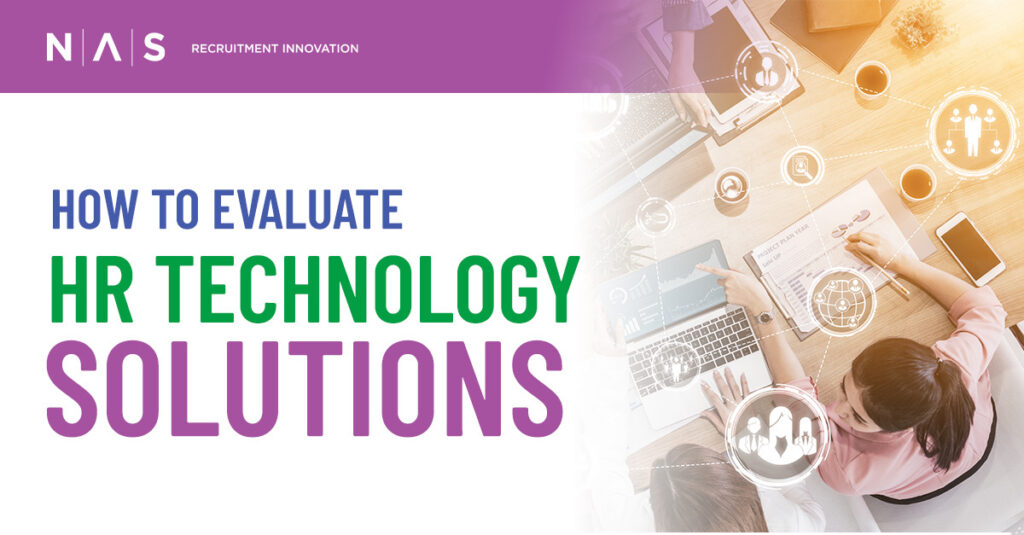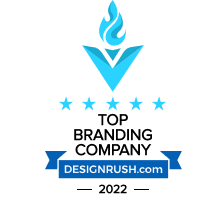-
How to Evaluate HR Technology Solutions
Posted by Allison Padgett on May 16th, 2023 
The promise of HR technology has always been a better work life for HR professionals. However, this is not always the result. We consistently hear from our HR partners that they have been inundated with more technological solutions than ever. They are being crushed by the number and variety of technology offerings available — everything from chat and AI systems to scheduling tools. Yet, their day-to-day issues and workload remain largely unchanged.
Meanwhile, HR technology companies continue to mushroom. By 2025, the market for HR technology will be worth an estimated $30 billion (Grand View Research). Measured from 2019, that’s a compound annual growth rate of 11%. We may have more and better tools than ever, but how good is that if they are not being understood or used properly?
While HR technology can provide significant benefits such as improving efficiency, enhancing communication and reducing errors, it can also create new challenges and burdens if implemented incorrectly. In this blog post, we will discuss how to maximize the value of HR technology while preventing potential burdens.
Define Your Needs
The first step in maximizing the value of HR technology is to define your needs. Available technologies can provide various benefits for recruitment and training and development, but not all solutions are created equally.
The best approach is to evaluate your existing HR processes, identify areas for improvement and select technology solutions that align with your needs and goals. The latest buzzworthy offering may not be the right one for you if it does not address a real gap or lead to consistent adoption within your organization.
Determine your TCO (Total Cost of Ownership)
TCO refers to the total cost associated with owning and using HR tech over its useful life. TCO includes not only the purchase price, but also the costs associated with implementing, operating and maintaining the HR technology. These costs can include hardware, software, licensing fees, training, support, upgrades and even replacement costs.
TCO is a critical factor in determining whether you can afford to invest in HR tech. It also helps you plan and budget effectively, as well as ensure that you are not overspending and can maximize your return on investment over the useful life of the solution (typically 3-5 years). To calculate the TCO of HR tech, consider several factors, including:
- Initial Purchase Cost: This includes the upfront cost of purchasing the HR tech solution, including any hardware, software and licensing fees.
- Implementation Costs: This includes the cost of setting up the HR tech solution, including data migration, software configuration and employee training.
- Operating Costs: This includes ongoing costs associated with using the HR tech solution, including support, maintenance, team-time to use and upgrades.
- Replacement Costs: This includes the cost of replacing the HR tech solution when it becomes obsolete or outdated.
Focus on Data Security
Data security is a critical concern for companies that adopt new HR technology. HR teams should ensure that their HR technology solutions provide robust data security measures, such as data encryption, access controls and regular data backups. As you evaluate technologies, make sure you involve the right individuals on your IT team early in the process so you can know right away whether the platform has been created with appropriate security protocols.
Ensure Integration with Existing Systems
Technology can pair well with HR, but it can also overcomplicate processes, depending on what you purchase and how it aligns with current systems. Integration is key for getting value out of HR tech. Putting software in place without proper integration can be a great source of inefficacy for HR.
When choosing and integrating your HR technology, make sure you can understand how it works with your existing tech. Determine what integrations and efficiencies are available before you onboard the new technology. Seek ways to avoid duplication of effort and excessive data entry. Make sure this is a technology tool that will maximize value and reduce the burden on HR teams, not add more complication to their efforts.
Invest in User Training
HR technology solutions are only as effective as the people who use them. Therefore, investing in user training is crucial to maximizing the value of HR technology. You’ll want to make sure you can provide comprehensive training to your team. Proper training ensures that everyone will understand the value of the new tech and how it can make their work easier, not more difficult. They will be more likely to adopt it successfully if they are properly trained and have a resource to answer questions as they begin to test and use it.
Be sure to check what kind of training is available to launch and support your new tech. With some HR technology tools, you are pushed to make do with online support and training modules, which may be insufficient or confusing. Make sure you have real human beings available for initial training sessions and ongoing support.
Most importantly, pick an HR technology partner who has a team of experts who specialize in the value the software delivers. Does the company you are evaluating have experts with real-world experience in delivering the results you are looking for? Having a partner who can go beyond basic system training by strategically advising you on the best ways to reach your goals will help you gain higher ROI while reducing your overall TCO.
Monitor and Measure Performance
Monitoring and measuring HR technology performance is crucial to identifying areas for improvement and maximizing value. Your technology should allow you to track key performance metrics such as time-to-fill, retention rates and engagement levels, so you can use this data to make informed decisions about the value of the technology.
HR technology providers often spin visions of great outcomes with little to no effort from the HR team. Then the ROI calculator comes out and the results don’t live up to the promise. Purchases are made and budgets are set based on these promises. Given the cost of these solutions and the time needed to train and onboard them, it’s important to know up front what data and analytics you will get so you can evaluate whether the tool is effective for your organization.
Again, this is an area where the partner you select can make or break your implementation. A trusted advisor who can help you track, measure and adjust your processes will increase your ROI and reduce your TCO.
Balance Automation with Human Interaction
Sometimes when we discuss HR technology, we forget that HR is in the business of people. Automation is great, but HR technology should not replace human interaction entirely. Remember that you are looking for tools to assist your team – not ways to bypass them completely. HR teams should balance automation with individual connection to ensure that candidates and employees feel valued and supported. Ideally, your technology should free up time for your HR team to provide the personal touch that people enjoy and appreciate.
Takeaways
HR technology can provide significant benefits to your company, but it is essential to maximize the value while preventing potential burdens. Define your needs, ensure integration and proper measurement, focus on security and invest in user training. By taking these steps, you can optimize the effectiveness of HR technology and improve your bottom line.
Considering adding CRM or other technology to your suite? Contact NAS today and we’ll be happy to discuss your HR Technology needs and tell you about our solutions.
Allison Padgett
As Director of Digital Marketing for NAS, Allison brings over 20 years’ experience to the team. She specializes in PPC/SEM and social where she brings her expertise in planning, strategy, execution, and analyzing, by creating employment marketing campaigns for numerous NAS clients. Not only is Allison determined and motivated about her work, she is also a very dedicated wife and mother to two children. Any free time she gets, you can find her volunteering at the school helping children read or spending time with her family.

